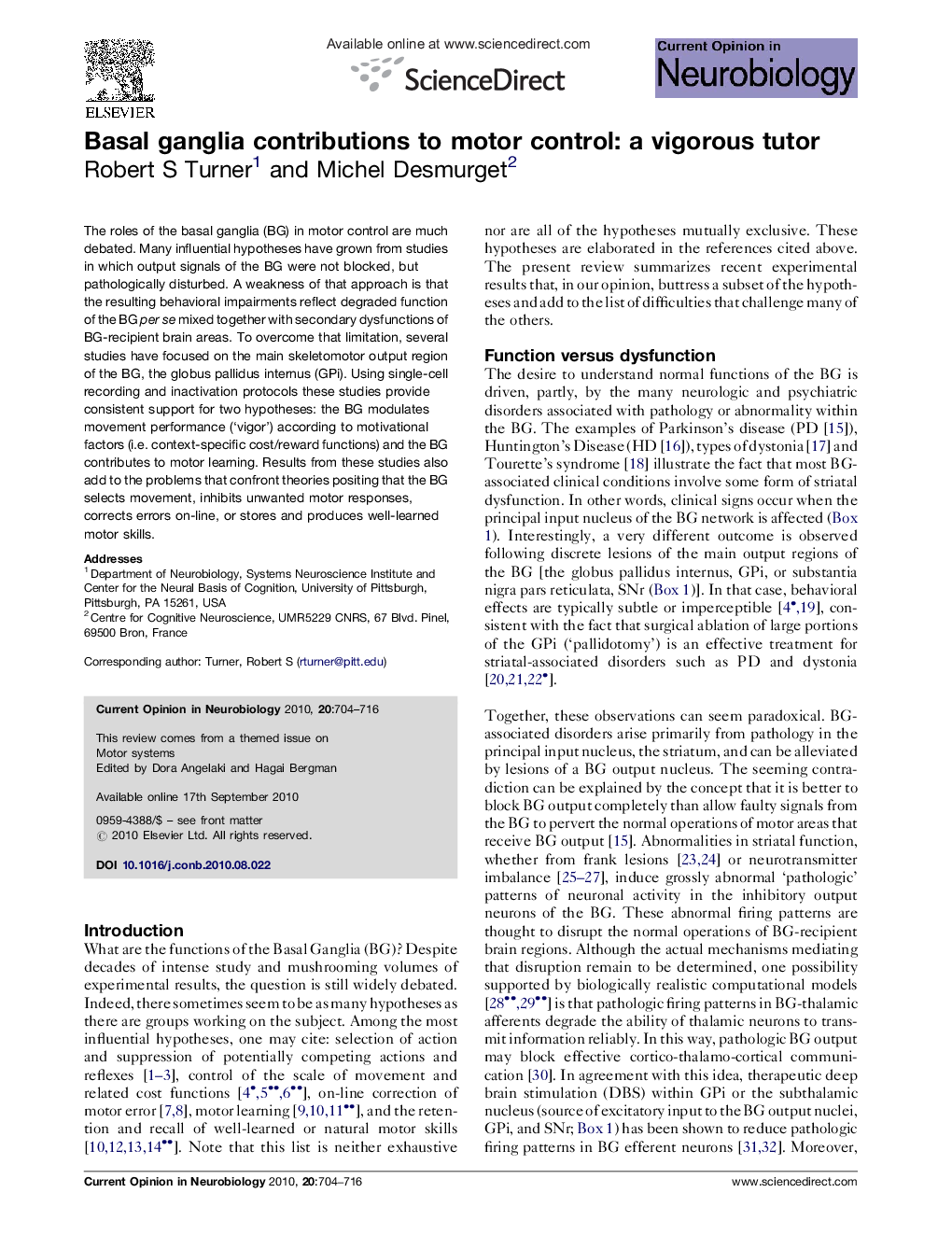| Article ID | Journal | Published Year | Pages | File Type |
|---|---|---|---|---|
| 4334574 | Current Opinion in Neurobiology | 2010 | 13 Pages |
The roles of the basal ganglia (BG) in motor control are much debated. Many influential hypotheses have grown from studies in which output signals of the BG were not blocked, but pathologically disturbed. A weakness of that approach is that the resulting behavioral impairments reflect degraded function of the BG per se mixed together with secondary dysfunctions of BG-recipient brain areas. To overcome that limitation, several studies have focused on the main skeletomotor output region of the BG, the globus pallidus internus (GPi). Using single-cell recording and inactivation protocols these studies provide consistent support for two hypotheses: the BG modulates movement performance (‘vigor’) according to motivational factors (i.e. context-specific cost/reward functions) and the BG contributes to motor learning. Results from these studies also add to the problems that confront theories positing that the BG selects movement, inhibits unwanted motor responses, corrects errors on-line, or stores and produces well-learned motor skills.
